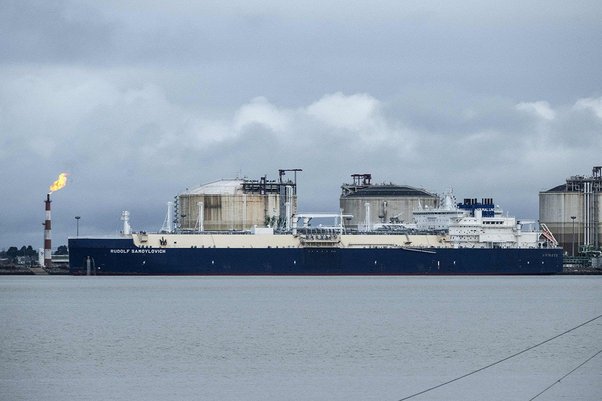Revenues from oil and gas projects backed by European and U.S. companies have fueled Vladimir Putin’s regime to the tune of nearly USD 100 billion since 2014.
While the Russian government has benefited from majority state-owned or state-controlled oil companies such as Gazprom and Rosneft, European and U.S.-based corporations have also spearheaded large oil and gas projects that filled Putin’s coffers.
These oil majors have long sought access to Russia’s vast hydrocarbon reserves, and in many cases brought the technological and operational expertise needed to realize projects.
Oil and gas company investments have taken the form of both equity holdings, such as BP’s stake in Rosneft, and joint ventures such as ExxonMobil’s operation of the Sakhalin-1 project. Since Russia invaded Ukraine in February 2022, oil and gas companies have faced pressure to disassociate with Russian producers, but recent divestments do not change their long history of support for Putin’s regime.
Table 1 shows the estimated revenues from oil projects backed by major European and American oil and gas companies to the Russian government from 2014, the year Putin sent troops into Crimea, through 2021. This 2014 invasion was widely condemned as a violation of international law and should have prompted these companies to reconsider their role in financing a military accused of such violations.
All payments found in this briefing are taken from Rystad Energy’s UCube economic model. A more detailed accounting could shed more light on the economics of these Russian oil projects, but such a study would be hindered by a lack of transparency.
The first column of Table 1 shows estimated direct payments to the Russian government due to upstream oil and gas projects located in Russia, as attributed by the company’s proportional share in those projects.
The second column shows estimated payments to the Russian government by Russian companies who have European minority owners, attributed by the minority company’s equity share. For example, Rosneft (of which BP owns a 22% stake) and Novatek (of which TotalEnergies owns a 19.4% stake).
These estimates may differ from actual payments made by an individual company to the Russian government for a variety of reasons, but they provide an estimate of U.S. and European oil company support for the Russian government during this time period.
BP stands out because of its share of the $353 billion estimated government take from Rosneft during this time period.
In the early 2000s, BP had a minority interest in BP-TNK, which was sold to Russian state-owned oil company Rosneft in 2013, leaving BP with a 19.75% share of Rosneft stock.
This share rose to over 22% in 2020 due to Rosneft share buybacks, although BP maintains its voting share at 19.75%. BP also nominated two members to sit on Rosneft’s board.
BP’s share of Rosneft’s oil and gas production, as reported in its 2020 annual report, accounts for 30% of BP’s total 2020 oil and gas production. BP's accounting method for its stake in Rosneft allows BP to report a share of Rosneft's oil and gas production, and revenues and profits (or loss) as part of BP's income statement.[2]
In this briefing, we have reported BP’s and TotalEnergies’ share of the royalties and taxes paid by the Russian companies, proportional to their equity stakes. In response to the findings of this briefing, BP stated that it does not consider itself as being responsible for any share of Rosneft’s payments to the Russian government.[3]
However, we included these values to provide greater transparency and a full accounting of these companies’ activities in Russia on the principle that a company’s responsibilities are proportional to its share in the companies it owns stakes in, in the same way that the benefits it enjoys are.
Although BP has announced it will divest its stake in Rosneft, the past impact of this equity stake cannot be negated – both in terms of the benefit to Rosneft from the capital provided, and the cash flowing as a result to the Russian state.
In total, these eight companies – BP, Shell, Wintershall Dea, ExxonMobil, TotalEnergies, Equinor, OMV, and Trafigura – are responsible for over USD 95 billion to the Russian government via their stakes in Russian oil and gas projects and companies since 2014, with BP responsible for 80% of this total.
Ultimately, the fact that Russia’s decision to invade Ukraine was able to send global oil and gas markets spiraling is yet another reason to speed up the transition to clean energy sources like wind and solar, which are far more stable and affordable.
We cannot trust the oil and gas industry – responsible not only for the climate crisis, but also conflict, displacement, and human suffering around the world – to be part of the solution to climate change.
Rather than aid the transition to cleaner and more stable energy, U.S. and European oil majors have spent the past decade financing Putin’s regime.
Oil majors must not be celebrated for succumbing to political and financial pressure to sell and abandon assets financing an autocratic, expansionist regime, when they held those assets and made tens of billions of dollars doing so, from Putin’s first annexation of Crimea and Donbas right up until after Russia finally invaded Ukraine in a full-scale invasion.
Company responses
When asked for comment on these findings, BP disputed the findings in relation to attributing a share of Rosneft’s payments to the Russian government to the BP. It stated that “we simply do not recognise the numbers you cite or, indeed, any suggestion that bp was somehow “responsible for paying” Russia “an estimated $78.4” billion since 2014. That is just incorrect.”
It went on to state that as a shareholder it did not make direct payments to the Russian government associated with Rosneft’s operations. BP stated that it did report “total replacement cost profit before interest and tax for [its interest in Rosneft] of $11.6 billion” over this period but that this did not constitute free cash flow. It went on to state that since 2015 it has publicly reported $350 million in taxes over six years in direct payments to the Russian government.
Trafigura stated that it holds a 10% stake in the Vostok oil project but that it “does not and has never operated upstream fossil fuel assets in Russia” and as a result has not made direct payments to the Russian government, and to date has not received a dividend or other payment from this project.
Equinor, ExxonMobil, OMV and Total did not dispute the figures provided, and BP, Equinor, OMV and Shell referred to their payments to governments data as part of their annual financial reports. Shell stated that it was unable to provide comment on the figures in this briefing in the timeframe proposed.Wintershall Dea stated that it was not in a position to verify our findings, and that it always conducted its business in compliance with all applicable laws, including the tax regimes of the countries in which we operate and any sanction regimes.
Total stated that it does not operate any oil and gas fields in Russia but is a minority shareholder in a number of non-state-owned Russian companies. It continued that “it cannot be seriously considered that the military aggression of Ukraine by Russia could result from the activities of these companies or companies with which TotalEnergies SE maintains relations commercial establishments” and that it would ensure strict compliance with current and future European sanctions.
Equinor stated that since sanctions were introduced in 2014, Equinor has fully complied with all Norwegian, EU and US sanctions relevant to our operations. ExxonMobil stated that they are ‘complying with all sanctions’ and that it ‘discontinued operations, as licensed by the U.S. government’ in compliance with sanctions after the occupation of Crimea. OMV stated that it “will ensure compliance with all applicable sanction regulations and legal provisions at any moment”.
Methodology
We use the Rystad Energy Ucube database to query the production and economics of the upstream oil and gas industry. Upstream refers to the exploration and extraction of oil and gas. Payments to the government, labeled Government Take in the database, include royalties, government profit oil, export duties, bonuses, income taxes, and other taxes and fees. The figures include payments derived from minority interest shares in Russian companies as well as those from assets directly owned by these companies.
This briefing is published by Oil Change International, Greenpeace USA and Global Witness. The article was written by Lorne Stockman and David Tong (Oil Change International), Tim Donaghy (Greenpeace USA) and Murray Worthy and Zorka Milin (Global Witness).
For more information contact: Lorne Stockman ([email protected]) Tim Donaghy ([email protected]) or Zorka Milin ([email protected])
Notes
[1] In response to a request for comment on this Rystad Energy data from Global Witness, Trafigura stated that they do not operate upstream fossil fuel assets in Russia and have not directly paid monies arising from production of fossil fuels. Trafigura states that it had a minority 10% stake in the Vostok Oil project.
[2] BP uses the equity-accounting technique to report the financial flows from Rosneft. It is a method used to attribute the proportional share of the investee company’s (Rosneft) financial metrics to the investor company (BP).
[3] When asked for comment on these findings by Global Witness, BP disputed the findings in relation to attributing a share of Rosneft’s payments to the Russian government to the company. It stated that “we simply do not recognise the numbers you cite or, indeed, any suggestion that bp was somehow “responsible for paying” Russia “an estimated $78.4” billion since 2014”.


